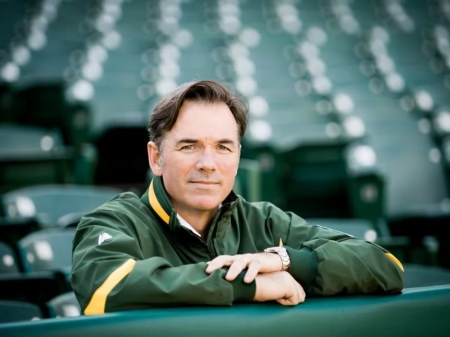Kirby Puckett was a legend on the baseball diamond. He left us too soon in 2006, just a week shy of his 46th birthday. It was a shocker, honestly. Not just because he was this baseball superhero who could do no wrong on the field but because he was only 45. Heartbreakingly, he was the second-youngest Hall of Famer to say goodbye, with only Lou Gehrig leaving us at a younger age.
Still, there’s so much more to his story, especially when we look at his net worth at the time of his passing.
Let’s break it down, and I promise to keep things light and easy to follow.
Profile Summary
| Full Name | Kirby Puckett |
| Born | March 14, 1960, Chicago, Illinois, USA |
| Died | March 6, 2006, Phoenix, Arizona, USA |
| Net Worth at Death | $3 million |
| Career | Professional Baseball Player (Center Fielder) |
| MLB Debut | May 8, 1984 |
| Teams | Minnesota Twins (1984–1995) |
| Achievements | 2x World Series Champion, 10x All-Star, 6x Gold Glove Award Winner 6x Silver Slugger Award Winner AL Batting Champion (1989), AL RBI Leader (1994) Baseball Hall of Fame (2001) |
| Education | Calumet High School, Bradley University, Triton College |
| Significant Contract | 3-year, $9 million (1990); 5-year, $30 million (1993) |
| Career Earnings | Estimated $43 million in salary alone |
| Hall of Fame Induction | 2001, first ballot |
Net Worth
At the time of his death, Kirby’s net worth was estimated to be around $3 million.
Not too shabby, right? Especially for a guy who spent his entire 12-year career with the Minnesota Twins, racking up awards like they were going out of style. We’re talking about a resume that boasted two World Series Championships, multiple Gold Glove Awards, Silver Slugger Awards… you name it. And let’s not forget he was the Twins’ all-time leader in career hits, runs, doubles, and total bases.
But how did Kirby stack up those millions? Well, in 1989, according to the New York Times Archive, he hit the jackpot with a groundbreaking three-year, $9 million contract in 1990, making him the first MLB player to earn a cool $3 million per year.
Then, in early 1993, he went for the gold again with a five-year, $30 million deal to remain at the Twins even though he could have gotten at least $5 million more from other clubs.
Kirby’s 3,500-square-foot brick house, which he built in Minnesota in 1986, was sold for $485,000 in 2021, along with his Wheaties and other memorabilia.
Career Salary
Kirby’s initial Major League salary was a modest $50,000. These numbers were standard for a rookie in the early stages of his career, especially in the mid-1980s. Puckett signed an endorsement contract with Louisville Slugger bats toward the end of his rookie year.
However, as Puckett began to showcase his skill and become a central figure for the Twins, his compensation saw substantial increases: from $130,000 to $265,000, $465,000 to $1.21 million, $2.05 million, and even up to $3 million.
By the end of his career, it’s estimated that Kirby earned a whopping $43 million in salary alone. Talk about hitting it out of the park financially!
During his active days, Puckett was the fourth baseball player in the 20th century to record 1,000 hits in his first five full calendar years in Major League Baseball and the second to record 2,000 hits during his first ten full calendar years.
After retiring from MLB in 1996 due to glaucoma, Kirby Puckett experienced a mix of accolades and challenges. He was inducted into the Baseball Hall of Fame in 2001 and had his jersey number retired by the Twins in 1997.
Post-retirement, Puckett faced personal and legal difficulties, including allegations of domestic violence and a sexual assault charge, which he was acquitted of. His health declined significantly in the years that followed.
Despite these challenges, Puckett remained dedicated to philanthropy, receiving the Roberto Clemente in 1996 and Branch Rickey Awards in 1993 for his contributions to community service. He also continued his legacy through the Kirby Puckett Eye Mobile, providing eye care to underserved communities.
Unfortunately, Puckett’s life was cut short on March 6, 2006, after he suffered a fatal hemorrhagic stroke the previous day. He died at the age of 45.


